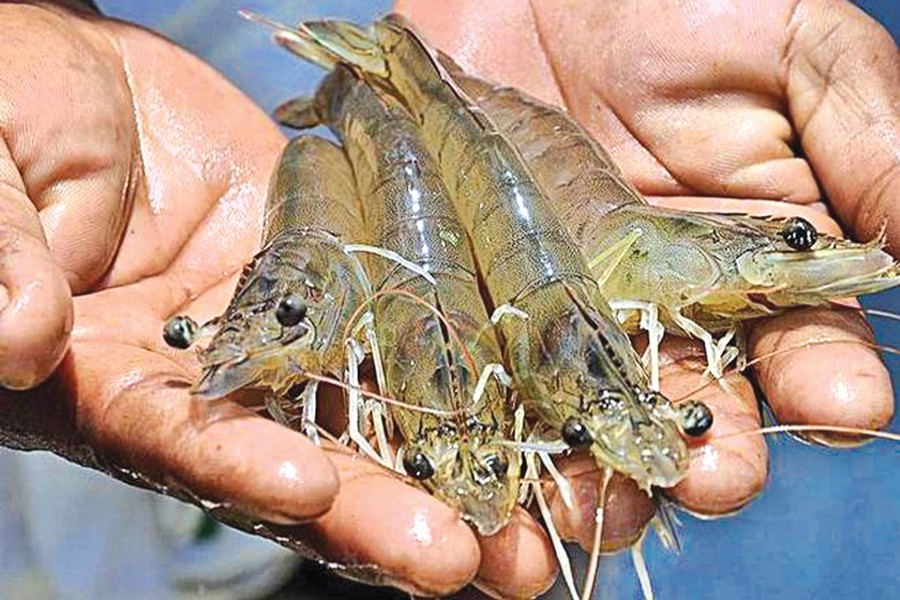The frozen food exporters' renewed focus on allowing the export of the vannamei type of shrimps as the only way out for saving this segment of the country's exports couldn't have been timelier. Shrimp exports in the post-Covid period show no sign of recovery. It's because a radical change in the nature and style of shrimp export has taken place in the last one decade. The traditional 'black tiger' or 'Bagda' species of shrimp has long been replaced by the 'vannamei' or king prawn variety. The global shrimp market appears to be overtaken by this species.
When it comes to shrimp export, Bangladesh had been enjoying its heyday in the sector for long until it suffered a setback with the EU countries' decision not to take shrimp from it. There were some genuine reasons behind this. The measure taken by the EU, once a large importer, came as a major blow to the Bangladesh exporters and growers concentrated in the country's southwest. In the 2014-15 Fiscal Year the country earned a handsome amount of $510 million. But the export earnings plummeted to mere $320 million in the last FY. People aware of the country's export sector developments single out the dominance of the vannamei species in the global shrimp market for this sorry state of the Bangladesh exports.
Vannamei, the 'king prawn' now accounts for 80 per cent of the global market share. In this exclusive area, Bangladesh, the previously seasoned shrimp-exporting country, veritably has no place. Shrimp exporters and farmers have lately begun feeling the pinch of not being able to enter this lucrative market. Bangladesh was fast falling behind in shrimp cultivation and export race, speakers at a recent seminar in Khulna observed. According to them, this adverse position was created by their limitation to cultivating the 'king prawn' commercially. The farming of this shrimp still goes on as pilot projects, the speakers rued. They have also not been entitled to get loans. The golden days of 'black tiger' shrimp cultivation and their export in large quantities are long gone. This is common wisdom to say that to keep pace with the new global shrimp export trends and remain a part of the exporting countries, the only option left open to Bangladesh is to start production of vannamei prawn. Farmers ought to be allowed to go ahead with its cultivation commercially.
Bangladesh Frozen Foods Exporters Association has reportedly been urging the government for long to allow commercial shrimp farming. The nation cannot afford losing its fast-fledgling market in non-EU countries in Europe, the US and some other regions. As part of its objective to regain the lost market, the government has allowed pilot vannamei prawn cultivation projects in some areas with brackish water. A lot of experts working on shrimp exports keep urging the Bangladesh authorities to shake off their indecisiveness vis-à-vis vannamei farming and allow the enthusiastic traders to get down to the export process. Against the backdrop of importing countries' shifting preference for shrimps, strong competitors have entered the scene. They include India, China, Vietnam and Myanmar. Thus Bangladesh's attempt to get back the lost shrimp market requires fresh strategy, determination and perseverance.


